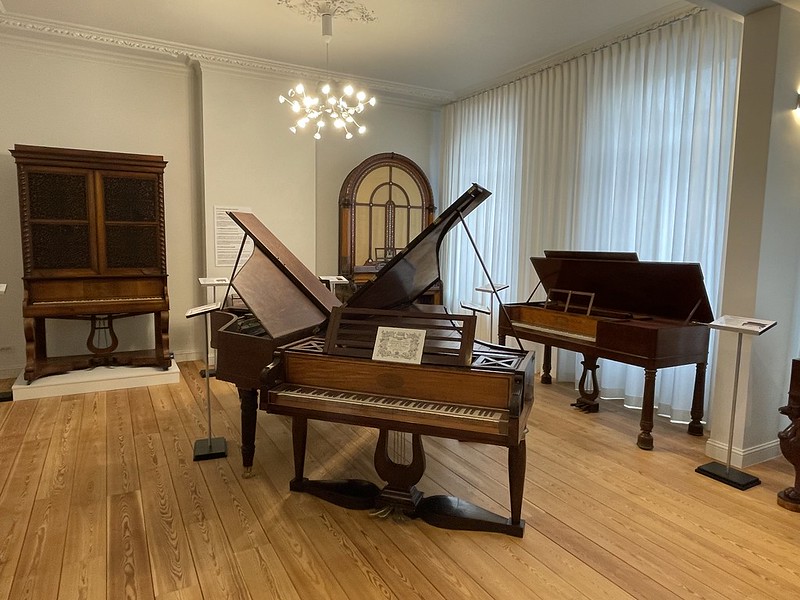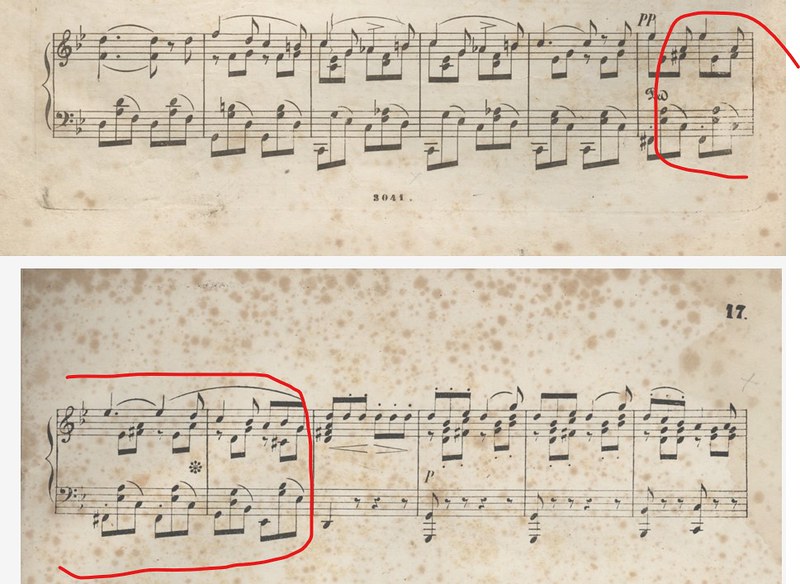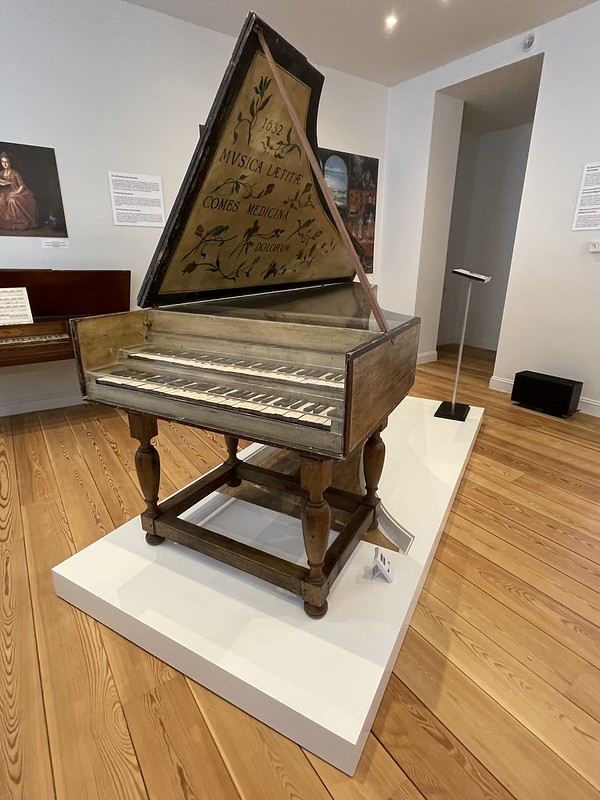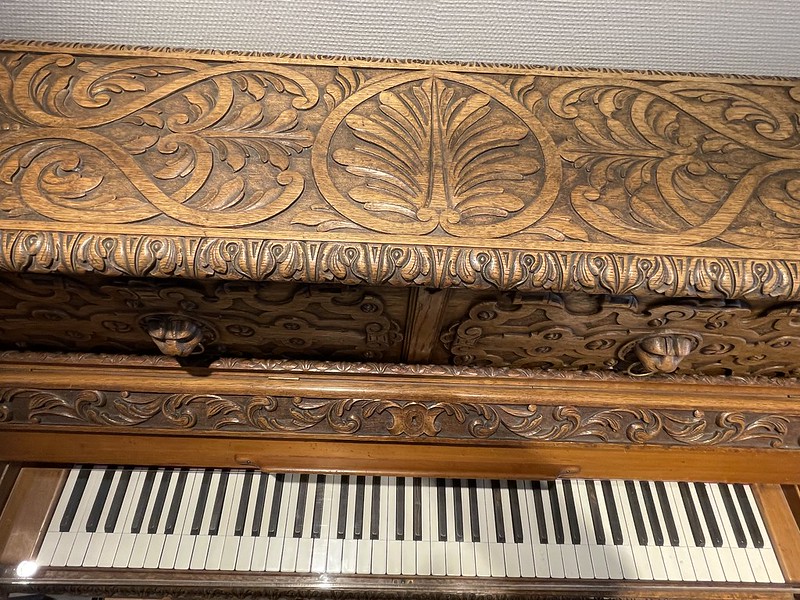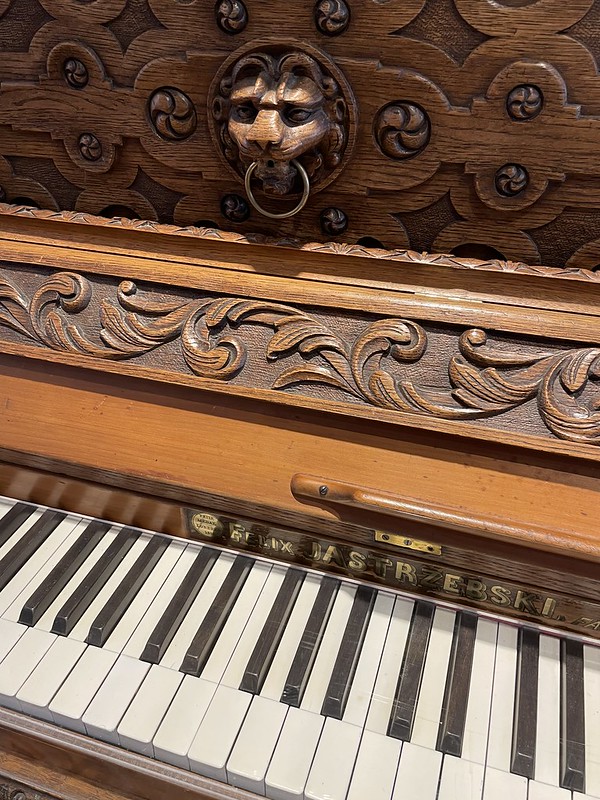I did a recital at the end of October at my current place of employment. I also agreed to play on the recital at the end of November. I have no idea what I will play and I have a chronically overwhelming lifeload for the next few weeks.
My brain is refusing to cooperate on all sorts of things. Bach, for one thing. Planning for the next six months, which has implications for the Grade 6 plans for end of Q1. I have a brand new notebook beside me for that, and calendars and stuff like that but the ideas for what I want to do are currently in a high security jail in side my head.
And I am afraid to even touch the piano. I don’t know if that is JSB’s fault (it’s hard to blame a man who has been dead for more than 200 years) or whether it is mine or whether it is linked to a whole pile of other stuff. Net result is the practice account is empty for the week. This is a pity on two fronts; one I made no progress on the piano and two I’m also berating the hell out of myself. About the only thing I did do was tidy the sheet music library (the printed one):
Oh and I found lots of lovely music in D Flat. More about that below.
Because we passed from October (that month flew), a new set of Piano Jam pieces went up on r/piano. I tend to look at that list with a view to using it as sight reading fodder which is something I managed once and then found a long searched for piece of music. Somehow I missed the three monthly list that went up in October (despite catching the Tiersen that I genuinely intended to do for that month but never got around to) and it has George Winston’s arrangement of Carol of the Bells, together with a link to MusicNotes. I have mixed feelings about MusicNotes and nKoda (I really don’t much like the subscription model) and it’s not clear to me with all the “you can only print once” or “you can’t print at all” how much this is really musician friendly. I don’t tend to want to print the stuff I have on Henle but nKoda and MusicNotes, and Sheet Music Plus are really in your face about that. I have downloaded a couple of pieces from Stretta and they had some version of the Carol of the Bells arranged by George Winston sans prelude. I have no idea when I can possibly start it and it will hopefully go into my forScore.
Rather irritatingly, on the first real day off I had in months, ie, I didn’t have to do anything, go anywhere, be anywhere, I was sick and I was effectively useless for 2 days for anything that involved concentration. Very unhelpful. I had hoped to get past the problems with the Bach that stands between me and the Rameau that I want to start sometime after Christmas, and clean up bits of the pieces for the exam which I had initially scheduled for March on the basis of regular practice which is just not happening since about the second week in October.
This has an impact on the planning for the following exam which includes a grade skip to 8. Like grade 5, Grade 8 is a gatekeeper grade in that unless I pass that, I cannot go onto the diploma programmes. I’m fifty and horribly afraid I won’t be up to Chopin Sonata III which is my plan for the FRSM in about 10 years time. It frustrates me and worries me. I get nervous about it.
My plan was to be more or less finished the finger/learning/memorisation work for the Grade 6 pieces by around Christmas and to continue polishing them for 2-3 months while starting some basic work on one or two of the four pieces for Grade 8. But I got impatient and looked at the Rachmaninoff sometime recently, mostly to investigate it for murderously big chords (there are two that I will need to roll) and to see how hard it was to read. It’s a measure of how differently my mind works that in fact, I don’t find it harder than the Bach that is eating into my self esteem. So at some point this week I watched a Tonebase webinar on planning piano practice for the next six months and I really need to start nailing down actual practice session goals.
I just wish I wasn’t missing so many. It’s like the piano is laughing at me.
Things in D Flat
For Grade 8, one of the pieces is in D flat, the aforementioned Rachmaninoff. For this, I’ve at least started two exercises that tend to support the playing of stuff in keys I don’t usually think in, the scales and improvisation. Because I somehow played stuff in C sharp when I was a teenager (by ear, so who knows, it could actually have been in D flat) my fingers fit the shape and improvisation and scales fit okay. I read through the Rachmaninoff, and I keep forgetting that G is flattened. What would be helpful would be other things in D Flat.
Reader, there are other things in D Flat. This for example:
Have I already mentioned this last week? I think so. Anyway, there was also a piece by Cecile Chaminade. We’re not talking about other things in D Flat that will make the Rachmaninoff any easier.
So I will probably finish off the C major Prelude by Bach (not the stuff that is keeping me awake at night) and transpose it into D flat. I’m not sure how much that will help but I think it might be complex enough to force me to write it. Someone told me the jazz guys, or at least the good ones could all play all of Well Tempered Clavier in any key they liked.
It’s just occurred to me that I haven’t played the piano since I went to hear Vikingur Olafsson play last week. I’m not sure why.
In the meantime, my brain is currently attacking me with the following: “Do All the Bach”. “Do all the Rebikov” = Oh Rebikov, I forgot to mention that. There’s a piece on the Grade 6 repertoire. Some days it goes beautifully, other days there is open warfare between my fingers and the piano. Isn’t the word mercurial? But also, a few years ago, Pianist Magazine listed one of his pieces, Yolka? Waltz from the Christmas Tree as a nice idea for Christmas, not too taxing. I should like to learn that. And the Carol of the Bells. Do the Carol of the Bells. Do all the sightreading from the November piano challenges. Do bits of the Chopin Ballade in G minor just for the pure hell of it. And you can start that Rachmaninoff.
LEAVE ME ALONE.
Oh and there is that waltz that Gregory Sokolov plays as an encore from time to time. And Le Matin by Tiersen which I was supposed to do in October on the side while working on the exam pieces as well.
WAILS IN PAIN.
I know the best thing to do is sit in front of the piano and at least do some of the Bach so that it goes forward. But I also want to plan. And I need a mindmap to get all of these cries out of frustration.
May I recommend Dvorak’s Piano Concerto if you are looking for something different to listen to?






